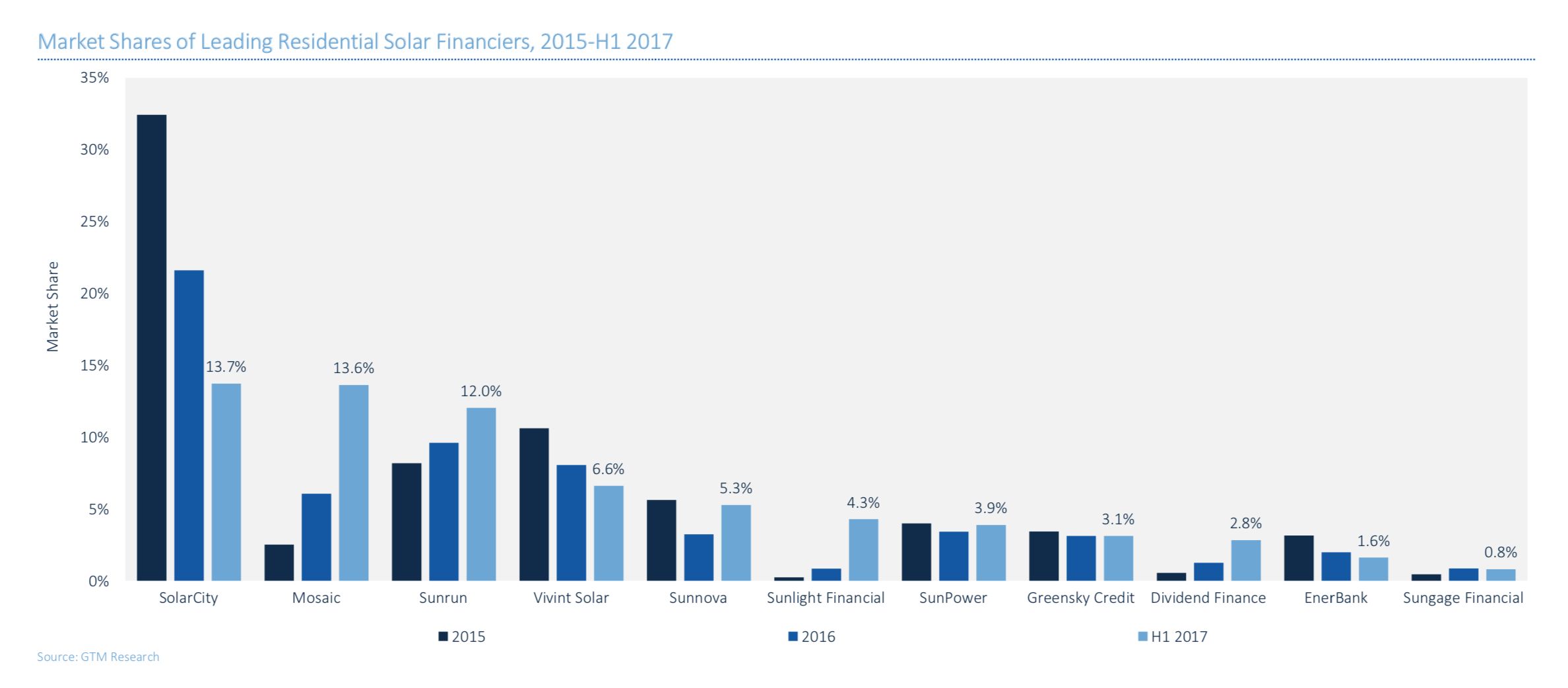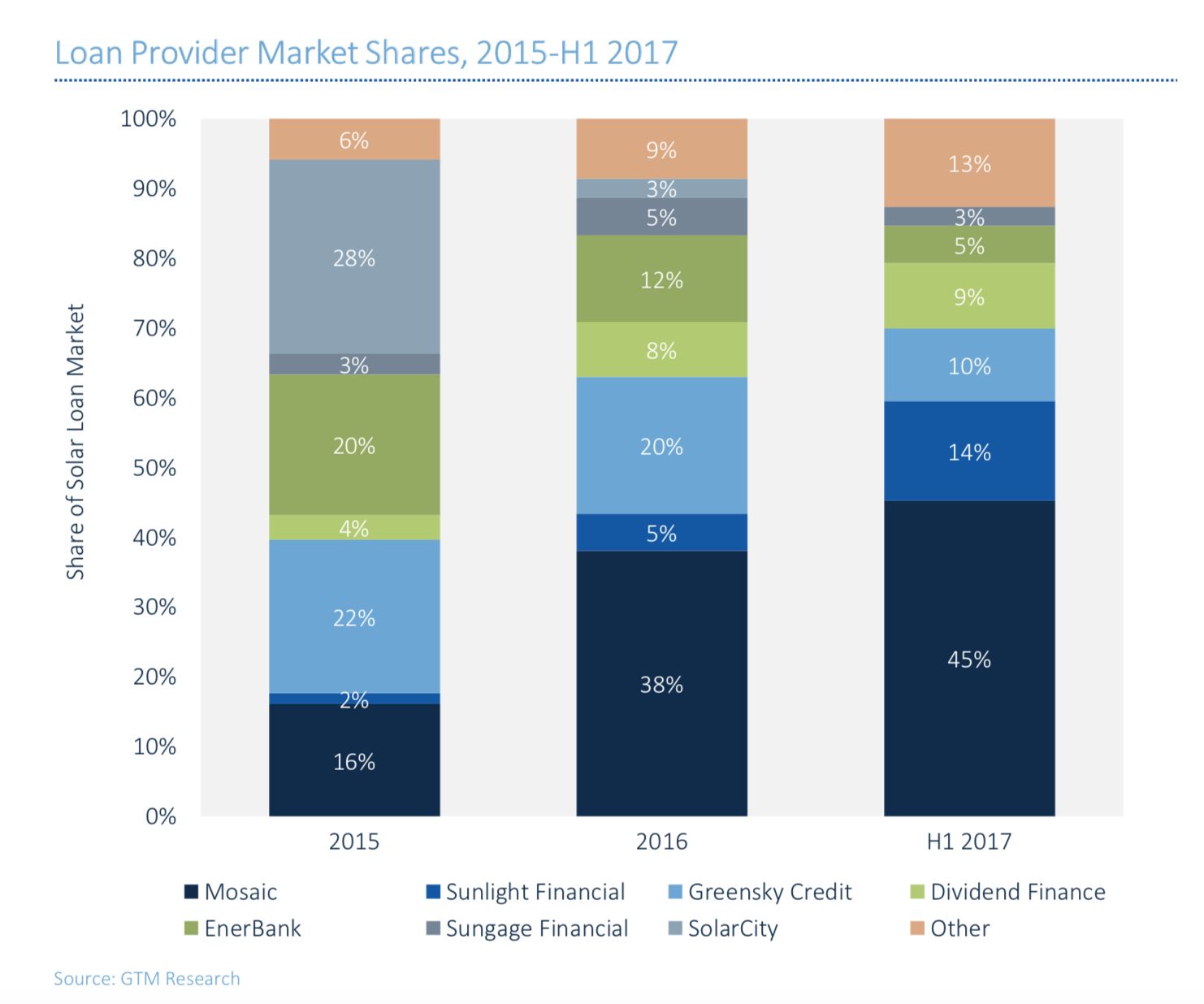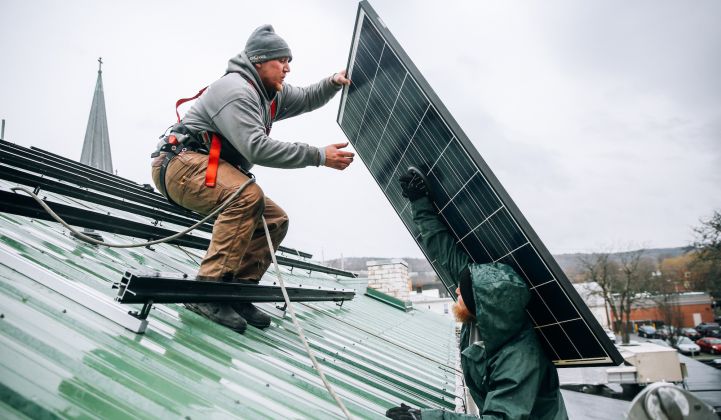The residential solar sector got a boost days after President Trump announced a 30 percent year-one tariff on imported solar modules.
Last week, Sunlight Financial announced that San Jose-based Technology Credit Union will offer $400 million more each year to fund about 15,000 solar loans. That adds to the credit union's already hefty commitment of $500 million to fund 20,000 rooftop installations.
“This is up there among the largest loan funds raised to date,” said Cory Honeyman, a solar analyst with GTM Research. “And the optics of raising $400 million and announcing it the week Trump decided on the outcome of the Section 201 trade case does support the view that investors remain confident in residential solar customer economics despite the introduction of tariffs.”
Beyond that, the funding helps cement Sunlight Financial's growing stake in the residential solar loan market. According to GTM Research, Sunlight is now the fastest-growing pure-play solar loan provider with a network of installers. The loan provider demonstrated exponential growth between 2016 and H1 2017, when it came to account for 4.3 percent of the total residential solar financier market. That places it among the top 10 leading residential solar financing companies, ranking alongside the likes of SolarCity and Mosaic.

Sunlight is now growing at a faster rate than loan market leader Mosaic. However, the capacity Mosaic deals in -- three times that of Sunlight -- makes it difficult to grow at the same rate, according to GTM Research solar analyst Allison Mond.
Though Mosaic still dominates the residential solar loan market, a wide array of solar loan companies, traditional banks, and credit unions are joining the mix -- providing financing both through installers and directly to the consumer. 
Sunlight now accounts for 14 percent of the residential solar loan market.
Much of that “dramatic growth,” according to GTM Research, can be attributed to Sunlight’s work with a few large installers.
“Like Mosaic, Sunlight Financial supplies loans to many top installers rather than the real ‘long tail’ of the industry,” writes Mond in GTM Research’s U.S. Residential Solar Finance Update H2 2017.
Last year was the first since 2011 that residential customers purchased more systems with cash and loans than with leases and power-purchase agreements. Over half of new residential installations were customer-owned in 2017.
According to Mond, those two trends are in part due to the increasing availability of loan products. The third-party ownership market, conversely, has consolidated. That’s left more opportunities for loan providers as falling solar costs make ownership a more viable option for customers.
Sunlight provides five- to 25-year loan products. In the first half of 2017, Sunlight originated about 48 megawatts' worth of loans, which Mond said equates to just under 7,000 loans. In 2016, Sunlight originated about 22 megawatts. Securing the 15,000-loan guarantee from Technology Credit Union indicates Sunlight will continue its growth in 2018, as the market trends suggest.
Though Trump’s tariff decision is mixed for the solar industry (MJ Shiao, head of Americas research for GTM Research, said it could be construed either as a “win-win” or a “lose-lose,” depending on one's outlook), funding guarantees like this one indicate the industry is coping and anticipating a prosperous future.
--
Join us for the 11th annual Solar Summit 2018 in San Diego, May 1-2. Powered by the unique blend of research and economic analysis from the GTM Research team, this year's agenda will feature themes from beyond traditional project finance to innovations in solar and the transformation of electricity.



